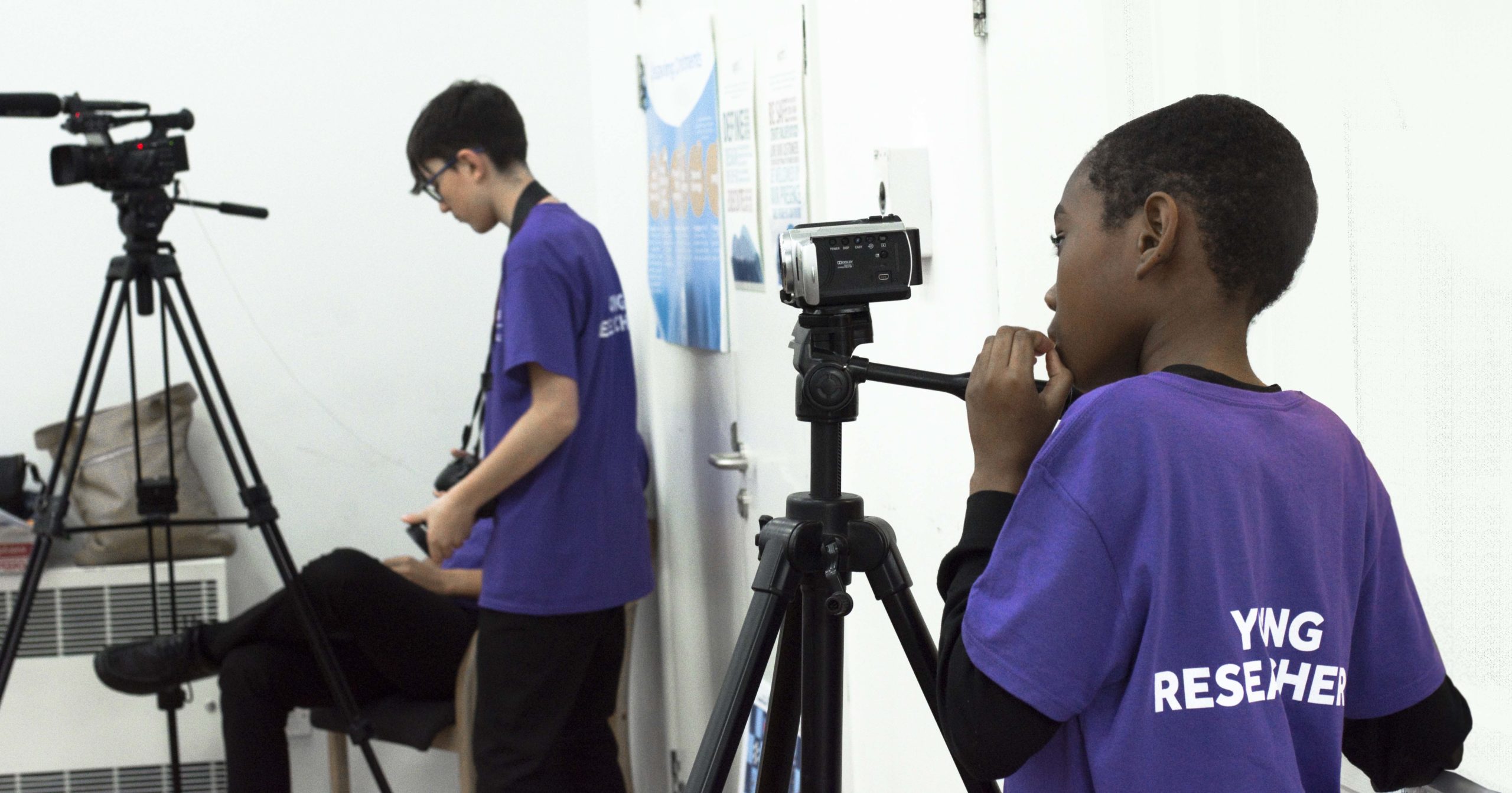Reading, like many towns, appears prosperous, but some communities at its heart live with a legacy of social inequality. Since 2014, Dr Sally Lloyd-Evans has worked alongside residents in Whitley and other local partners, to develop a collective now known as the Whitley Researchers. Armed with research tools, the team is identifying needs within the community that will help them to address issues of economic and social exclusion.
As the Whitley Researchers’ ambition and influence grows, their work is extending to include young people, parents and schools. In partnership with Reading Borough Council, the team has co-produced a research project that involves the whole community.
This phase seeks to understand and highlight young people’s attitudes and aspirations to further education, transitions to work, and their future lives. The methods are fresh, innovative, and often unique. A group of 13-14 year-olds at the John Madejski Academy have become the Whitley Young Researchers who now devise their own research questions and approaches.
They’ve devised a research tool they call the ‘Aspiration Game’. Based on the familiar board game ‘Snakes and Ladders’, the game facilitates conversation around the barriers and opportunities young people living in Whitley face. It’s already encouraging children as young as seven to think differently about the future.
A recent ‘Question Time’ event highlighted the ‘fantastic work’ of the Young Researchers in shaping borough-wide services, to representatives from Reading Borough Council, Affinity Housing, other schools, the police and fire services. A growing list of partnerships with other schools and local organisations means the initiative is inspiring everyone with an interest in Whitley’s future to ensure voices of young people are heard.
Team: Sally Lloyd-Evans, Whitley Young Researchers, Paul Allen and the Whitley Researchers
Partners: Whitley Community Development Association, Whitley Researchers, Reading Borough Council, John Madejski Academy, Study Higher
Judges’ comment: “This is an excellent example of how working with young people to develop their skills and confidence can help to give communities a voice”
Shortlisted for the University Research Engagement and Impact Awards 2018
First published: June 2018

